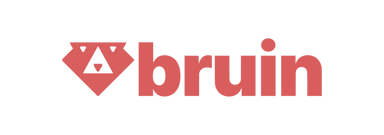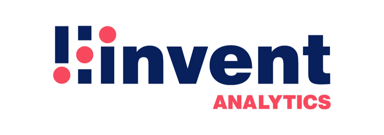Group Interview
In the everlasting landscape of recruitment, group interviews play a crucial role in your hiring process. Managing a group interview may support the process a lot, helping you to assess a candidate’s necessary aspects like teamwork, performance under pressure, etc.
What is a Group Interview?
Group interview is basically a type of assessment that interviews multiple candidates at once. This approach is particularly beneficial for roles that require strong teamwork, communication, and leadership skills, as it allows employers to observe these abilities in real-time.
Group interviews, as opposed to typical one-on-one interviews, include a variety of interactive elements intended to mimic actual workplace issues and scenarios. Conducting a group interview is a time-efficient way to evaluate top choice candidates, allowing you to operate at an optimum efficiency rate. 📊
Group interviews allow your HR team to evaluate candidates in important areas such as workplace culture, interpersonal skills, and creativity. It allows the hiring team to discover many more important features about the candidates through the activities in the interview. 👇🏻
- Stress management: Candidates are put in challenging situations, allowing the interviewers to observe how they work under pressure.
- Teamwork: Group interviews provide a unique insight into the candidates’ ability to cooperate and collaborate with other teammates during workload.
- Problem solving: On-the-spot questions or activities will help you understand the ideal candidate’s problem-solving skills.
- Leadership: Getting involved in challenging case studies will reveal natural leaders, allowing you to experience their leadership first-hand.
- Creative thinking: A creative approach and innovative thinking is best observed in a group setting.
- Interpersonal skills: Whether a candidate would show empathy and build strong relationships with his peers is an important element to consider while hiring.
- Adaptability: A candidate’s response to the challenging dynamics organized by the hiring team measures their adaptive skills. These skills may later help with forecasting a candidate’s stress management skills as well.
Types of Group Interviews
Although types of group interviews may vary, they are mostly categorized as such:
- Group interview: A group interview involves multiple candidates being assessed together, either through group discussions, collaborative tasks, case studies or other activities.
- Panel interview: A panel interview involves multiple interviewers, called a panel, assessing one candidate. They are considered group interviews because a group of interviewers are present. Panel interviews are mostly preferred to get more than one perspective on an applicant, ensuring a thorough evaluation. The primary goal of this type of interview is to gain a comprehensive understanding of the candidate while evaluating his fit within the team and the organization.
Panel Interview vs Group Interview – Which One Is Better?
It depends on your desired outcomes. Both interview types serve different purposes. Group interviews, where a group of candidates are evaluated together, are mostly preferred to assess candidates through interactive discussions. In contrast, panel interviews are where a group of interviewers are assessing one candidate by himself. So, while panel interviews focus on individual performance, group interviews emphasize collective dynamics and how a candidate performs in such an environment. Both methods of interviews can be used in your hiring process, you just might want to choose according to your objectives. 📚
Planning a Group Interview
1. Define Objectives
Define your purpose: what are you looking for in your candidates? Determine the skills, behaviors, qualities you wish the ideal candidate to have.
2. Choose the Format
Determine the format of the interview. Whether it’s a panel interview or a group interview, preparing for the right type of scene is important. Then tailor the plan to your ideal assessment process: decide if it’s going to be a virtual meeting or a face-to-face one.
3. Establish the Plan and Develop Questions
Prepare your questions in accordance with your objectives for the role. Think about the skillset you are scouting and carefully put out questions to help those skills blossom in a group setting. You can also plan case studies, small activities, or presentations to help the skills you are looking for emerge in a group setting.
4. Organize & Operate Your Group Interview
Once you manage everything, your group interview will assist you in deciding your next teammate.
How to Form Group Interview Questions: Tips & Tricks
Measuring out the qualities of your candidates in a group interview is crucial to pick the standing out applicant. Seeing different answers in comparison will help you to choose a candidate. Here are some tips & tricks to help you find your next exceptional employee through the power of words ⚡️:
- Ask questions about the role. This type of question will give you a glimpse of why the candidate applied for the role. You can also assess the candidate’s expectations from this role through his answer.
- Ask behavioral questions to get applicants to talk about their past experiences. It can also be about how they overcame particular obstacles or accomplished goals. This aids in evaluating their aptitudes, abilities, and cultural fit with the group.
- Ask about descriptions: how would your friends, family, colleagues describe you? This gives a clear view of self-perception, giving you a preview of how this candidate will fit into what skills you are looking for for this role.
- Form questions that will involve more than one person’s opinion. This can be about the company or about the role. Being able to compare different answers given to the same question will allow you to assess the candidate more thoroughly.
Final Thoughts
In modern hiring processes, group interviews may assist you in discovering talented candidates amongst your applicant pool. By observing your candidates in a dynamic interviewing environment, you can observe your wanted objectives through forming specified cases and questions. Establish exclusive and productive human resources operations by modern solutions that allow the candidates flourish in designated situations.
Don’t forget to visit Hirex – read our carefully curated content and elevate your hiring operations now.
Get a demo
- Quickly find top candidates with smart application management
- Improve team collaboration using built-in communication and workflows
- Offer a smooth candidate experience to strengthen your employer brand
- Count on 24/7 support for a hassle-free hiring process
- Quickly find top candidates with smart application management
- Improve team collaboration using built-in communication and workflows
- Offer a smooth candidate experience to strengthen your employer brand
- Count on 24/7 support for a hassle-free hiring process
"We truly felt the speed difference. Everything was smoother, and candidate feedback was much more positive. It made our jobs easier."

Trusted by 100+ teams
Get Informed,F.A.Q.
Revolutionize your hiring process with our transformative Applicant Tracking System (ATS.)
Suggested keywords
What is Cultural Fit?
Let's talk numbers - 89% of employers put cultural fit at the top of their hiring checklist. Pretty huge. But wait a second... what exactly does cultural fit mean in today's fast-moving workplace?The ...
Employee NPS Benchmarks
An Employee NPS benchmark is basically a way to see how your company’s employee satisfaction stacks up against others. It helps turn your eNPS score into something useful by giving it context. 📌You'r...
Salary Benchmarking
Salary benchmarking is basically figuring out if what you're paying your team makes sense compared to what others are offering for similar roles. It’s like checking the going rate before you buy somet...















